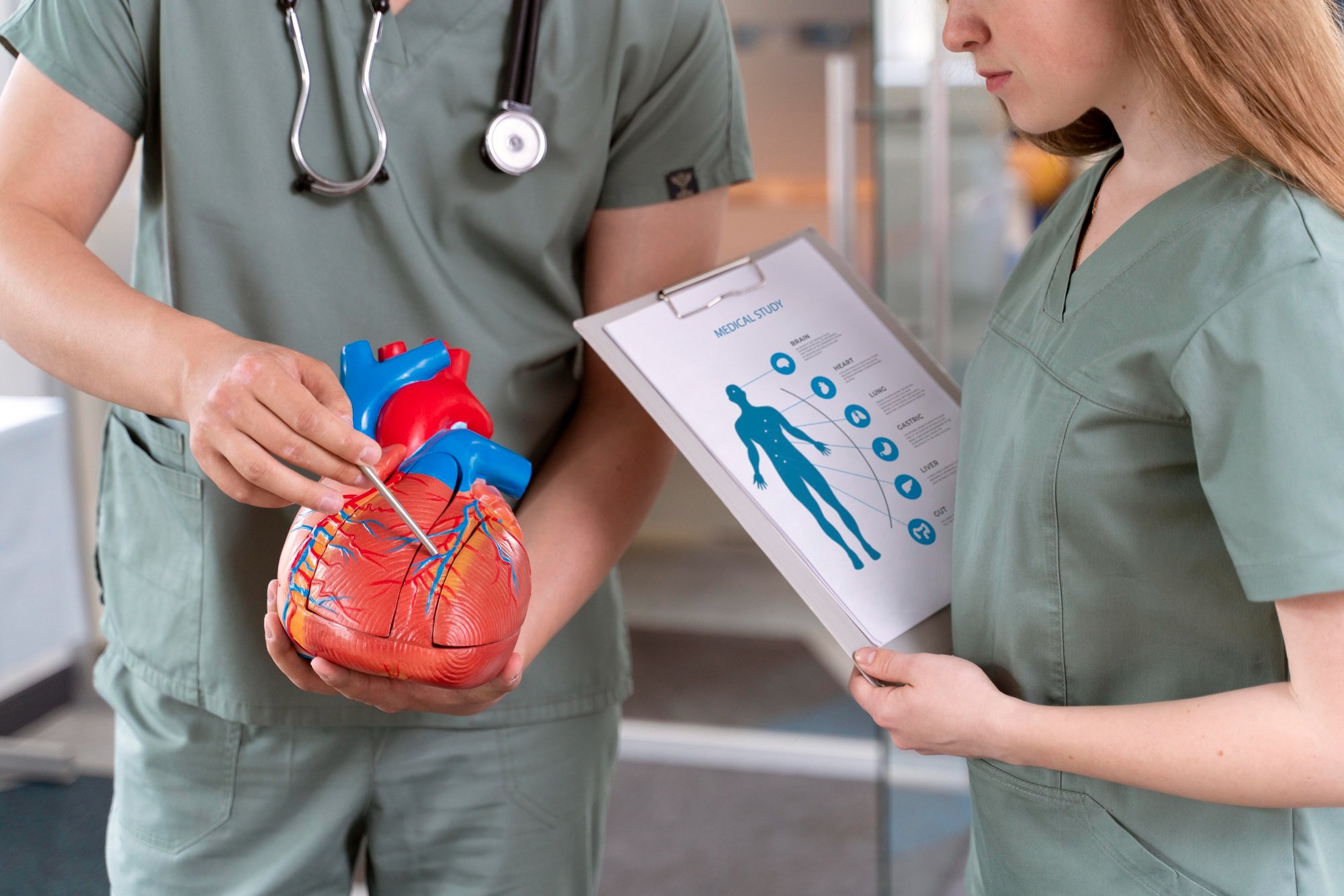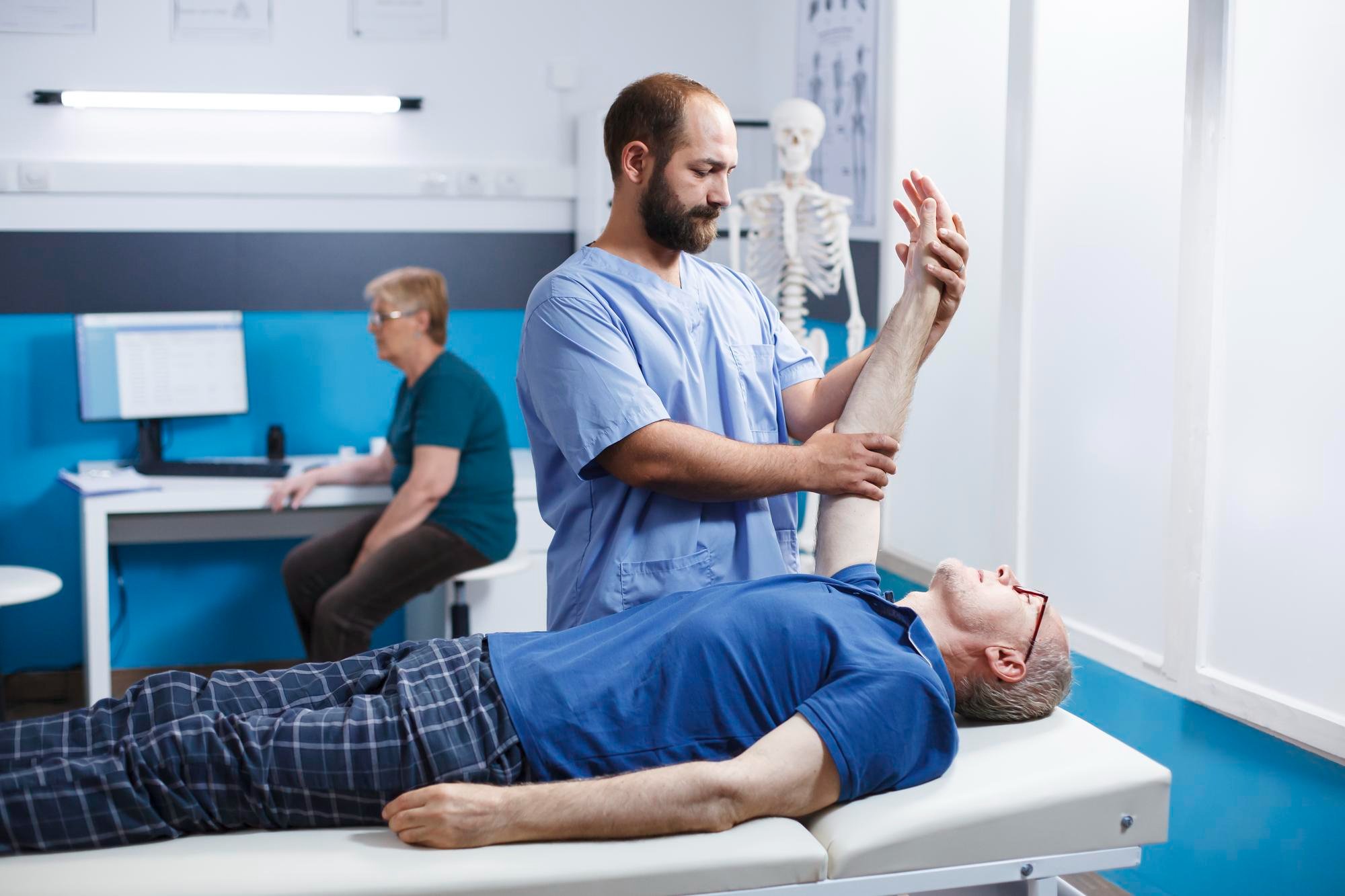
Physiatry is a broad field including the treatment of various conditions, from musculoskeletal to neurological. Once you complete a residency in physical medicine and rehabilitation (PM&R), you may pursue a subspecialty to hone your knowledge in a particular area. You can do this through fellowships and subspecialty certification. The American Board of Physical Medicine and Rehabilitation (ABPMR) currently offers six subcertifications in physiatry.
1. Brain Injury Medicine
This subspecialty deals with the prevention of brain injury. It also focuses on evaluation, treatment and rehabilitation of disorders of brain function due to injury and disorders of the central nervous system. Those with a subspecialty in brain injury medicine often work with interdisciplinary teams to guide recovery and improve patient health. This treatment may involve dealing with the patient's psychosocial, educational or vocational life.
A fellowship in brain injury medicine typically lasts a year or up to three for research. During this time, you will train in areas like:
- Neurotrauma consults
- Neuropathology
- Neuropharmacology
- Headache management
- Neuroradiology
- Acute inpatient neurorehabilitation
After completing a fellowship, you can get certification through the ABPMR. They have offered accreditation since 2014 in partnership with the American Board of Psychiatry.
2. Pain Medicine
Training in the pain medicine subspecialty focuses on diagnosing and treating many painful disorders that cause acute or chronic pain. It could also include treatment of pain related to cancer. Physiatrists in this subspecialty often coordinate with other specialists in hospital and outpatient settings.
Your training may vary widely depending on the fellowship since pain has many causes and treatment options. Fellowships in pain medicine typically focus on:
- Musculoskeletal and sports medicine
- Functional restoration
- Interventional spine and electrodiagnosis
ABPMR has offered this certification since 2000 in partnership with the American Board of Anesthesiology and the American Board of Psychiatry and Neurology.
3. Sports Medicine
Physiatrists specializing in sports medicine deal with physical fitness, including diagnosing and treating sports injuries. They also treat illnesses and diseases affecting performance in sports or other exercise-related activities.
As a physiatrist, your work may involve various diagnostic and treatment procedures, including musculoskeletal ultrasounds, casting and splinting, and injections of joints and tendons. Some professionals work in spinal procedures and electrodiagnostics.
If you decide to pursue this subspecialty, your fellowship training may include:
- Exercise prescriptions
- Treatment of musculoskeletal problems in athletes
- Pre-participation physical exams
- On-field assessment and triage
- Event administration
- Musculoskeletal imaging
- Functional anatomy
- Ergogenic aids
- Sports nutrition
- Bracing and orthoses
ABPMR has offered sports medicine certifications since 2007 in partnership with the American Board of Family Medicine and three other boards.
4. Neuromuscular Medicine
Those with a subspecialty in neuromuscular medicine deal with disorders affecting the nerves and muscles. They provide diagnosis, evaluation, treatment, management and counseling. Here are a few conditions neuromuscular subspecialists might work with:
- Abnormalities of the motor neuron (e.g., amyotrophic lateral sclerosis)
- Muscular dystrophies
- Peripheral neuropathies (e.g., diabetic)
- Neuromuscular transmission disorders (e.g., myasthenia gravis)
- Congenital and acquired myopathies
- Inflammatory myopathies (e.g., polymyositis)
Your fellowship training in neuromuscular medicine involves at least six months of neuromuscular focus. After this, you may spend six or more months in medical genetics, muscle pathology, research or electrodiagnosis.
The American Board of Psychiatry and Neurology and ABPMR partner to offer this certification. ABPMR has offered accreditation since 2008.
5. Spinal Cord Injury Medicine
The subspecialty of spinal cord injury medicine primarily deals with preventing, diagnosing, treating and managing spinal cord injuries. Physiatrists in this subspecialty often deal with nontraumatic causes of spinal cord dysfunction as well. These may include multiple sclerosis, arthritis, cancer, spina bifida and Guillain-Barré syndrome.
They work on inter-specialty care teams providing lifelong medical, physical, vocational and psychological assistance or work in acute care settings. Their work may involve prescribing equipment and therapies to enhance mobility and self-care. Spinal cord subspecialists may manage secondary complications of spinal cord injuries, ranging from mood disorders to pressure ulcers and pain.
Spinal cord injury fellowships last one year and consist of a range of training, including:
- Inpatient rotations
- Consultations
- Outpatient rotations
Outpatient rotations may include pulmonary care, orthopedics, neurosurgery, pediatric clinics and spasticity. Those interested in spinal cord injury medicine may take a two-year research fellowship.
The ABPMR has offered certifications in spinal cord injury medicine since 1998.
6. Pediatric Rehabilitation Medicine
If you pursue a subspecialty in pediatric rehabilitation medicine, your work will involve preventing, diagnosing, treating and managing congenital and childhood-onset physical conditions. Conditions may include cerebral palsy, acquired brain injuries, cancer and amputations.
Physiatrists in this subspecialty often work on care teams aiming to improve mobility and daily function at home, school and beyond. You may prescribe equipment and therapies and manage secondary conditions like bladder dysfunction and spasticity.
Fellowship programs may last one to two years in this subspecialty, depending on whether you completed a traditional PM&R residency or a combined pediatric and PM&R residency. During your fellowship, you will gain clinical experience like:
- Inpatient pediatric rehabilitation
- Outpatient pediatric clinics
- Subspecialty rotations
- Consults
- Research
The ABPMR has offered certifications in this subspecialty since 2003.
Begin Your Physiatry Career
Whether you pursue general physiatry or one of the physiatry subspecialties, Medrina provides support to connect you with skilled nursing facilities (SNFs) and inpatient rehab facilities (IRFs). Talk to our team about the range of opportunities we offer for employment to professional growth.
"Medrina has given me abundant opportunities to grow professionally and expand my patient reach all the while maintaining a work/life balance. The company always has new projects that are exciting opportunities to learn and apply our varied knowledge as PM&R physicians."
– Dr. K., Physiatrist, Pennsylvania"I love working for Medrina and in Physiatry because I feel like I am really helping these patients and I love the autonomy. . . being able to help them is very rewarding."
– Danielle M., APP, Indiana"Medrina gives me the freedom to work and to teach."
– Dr. M., Physiatrist, Massachusetts"The support I have received in my tenure with Medrina has been exceptional. I have always believed that I could find my place in corporate medicine, but just didn’t seem the find the right fit until now. . . "
– Michael C., APP, Florida"I truly fell in love with acute inpatient rehab and post- acute rehab. I love treating patients from admission to discharge and watching them make progress and in most cases return to the community. Working for Medrina has been a blessing. This company has allowed me to practice autonomously and really make a difference in my patients lives."
– Luke B., APP, Florida"I love working for Medrina because it allows me to work with our underserved aging and debilitated population. I feel that there is so much we can provide these often overlooked Post-Acute Care patients with a focus on Improvement in functional mobility and quality of life."
– Dr. F., Physiatrist, Florida"There is a nurturing support system in the company. Medrina truly wants you to succeed and be happy. I feel as though I have the best of both worlds now, the coziness of a mom-and-pop shop setup along with the positives that a bigger company can offer, such as benefits, stronger EMR system, and coverage for vacations."
– Julia J., APP, New Jersey"I love working for Medrina because every interaction I've had with other co-workers has been a pleasure. The team is extremely caring and supportive!"
– Dr. P., Physiatrist, New Jersey"Ten years ago, joining the IRC family—now Medrina—marked the beginning of an incredible journey and one of the best decisions I’ve made to balance work and home life. Over the years, I’ve witnessed remarkable growth in the size of our company and the reach. With that expansion, Medrina has remained committed to cultivating positive, lasting relationships with our buildings. I’m proud to be part of a team that continues to grow with integrity, purpose, and care."
– Angela H., APP, Illinois"I’ve found this role to be a great balance of clinical impact and lifestyle. It offers a unique middle ground between inpatient and outpatient medicine. Overall, this is a very solid and clear career path for physiatrists looking for a role that’s both fulfilling and manageable long-term. The balance, the patient interactions, and the compensation all make this a compelling opportunity."
– Dr. H., Physiatrist, New York"Medrina has provided me with an incredible workplace environment – there is strong comradery, good communication between providers and leadership, and a lot of autonomy with our position, which I enjoy."
– Kyle C., APP, CaliforniaOther Articles
-1.png)





